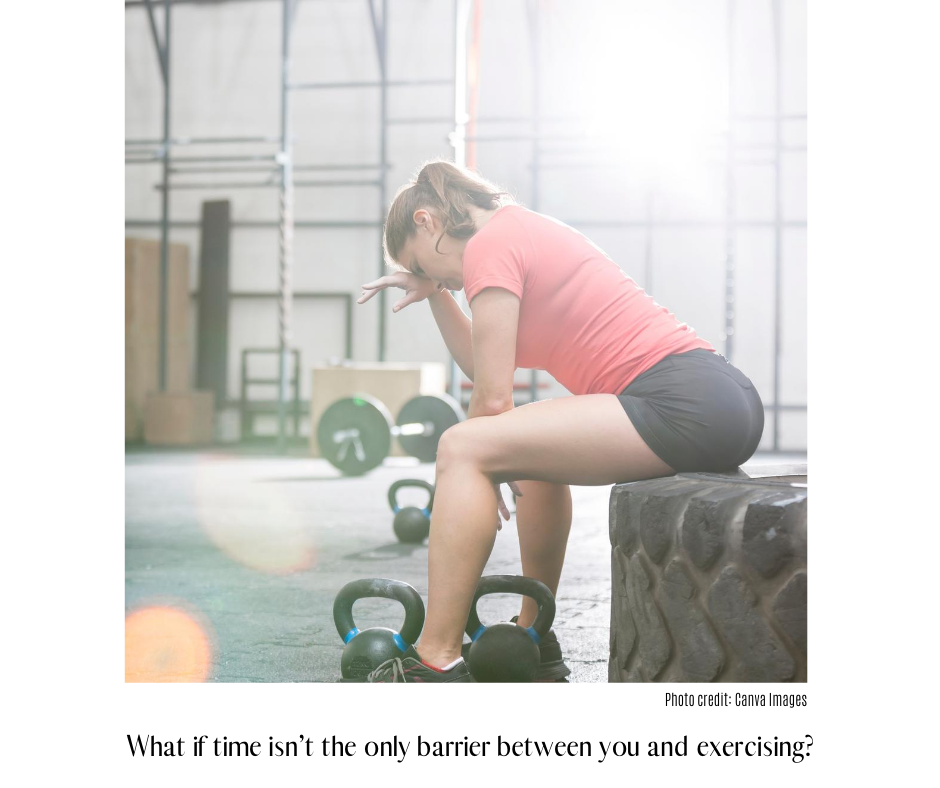Exercise Intolerance or Intolerant of Exercise?
By Julie Khanna with expert insights by Dr. Denzil Seedial, M.D., FCCP, a critical care medicine and pulmonologist at PCSI, the largest integrated pulmonary and chest specialty group in Palm Beach County.
Exercise Intolerance or Intolerant of Exercise?
Find out what’s stopping you from the powerful pandemic stress remedy.

Endless polls and studies cite the number one reason Americans give for not exercising is lack of time. The downtime of quarantine seems like the perfect opportunity to bring about ambitious goals of rekindling old exercise routines, or even starting new ones, especially since exercise is hailed as a powerful remedy to pandemic stress. But what if after giving neighborhood power walks a shot you realize it’s not just the time factor that’s holding you back.
The Centers for Disease Control and Prevention (CDC) report only about half (53.3%) of adults over the age of 18 meet the physical activity guidelines for aerobic physical activity despite the overwhelming supportive research proving exercise is fundamentally essential for vitality.
Exercise Intolerance
For some people, exercise intolerance is the underlying barrier that makes exercising seem impossible. The good news? Exercise intolerance doesn’t make exercise impossible, but it does need to be addressed to successfully incorporate something as vital as exercise into your lifestyle.
“Exercise intolerance is the inability to do things that you could have done prior to having an event,” Dr. Denzil Seedial, a critical care medicine/pulmonologist at Pulmonary, Critical Care and Sleep Disorders Institute of South Florida explains. For example, a major accident, certain illnesses, or a COVID-19 or respiratory tract infection would be considered an event. “It’s any change from baseline.”
Diagnosing the root cause of exercise intolerance may require a little more investigation if no events or obvious life changes can be identified.
“If you continue to be short of breath it’s usually cardiac or pulmonary related. If after slowly beginning to exercise a patient reports they’re finding themself more short of breath than the average person, and we don’t think it’s from deconditioning, then further diagnostic testing like a chest x-ray or a pulmonary function test are used to look for things like asthma, exercise induced asthma, or COPD,” adds Dr. Seedial. If those are unremarkable then further testing may be indicated like a cardiopulmonary exercise stress test.
Intolerant to Exercise
Our minds undoubtedly play a major role in everything that we do, including finding the motivation to do things and the relationship between how we accept the success or failure of personal goals. If we set exercise goals that are unrealistic, and subsequently can’t meet those goals, we may feel an unhealthy sense of failure, making exercise feel impossible. We might even feel a sense of self-betrayal for not being able to honor the exercise goals we promised ourselves.
“Everyone should see their PCP (primary care physician) for clearance before beginning a new exercise routine.” says Dr. Seedial. Your PCP can also help you identify realistic exercise goals and recommend exercises that have the highest potential for individual success and safety.
“Focusing on the now by staying present with your day and your movement of choice without worrying about what’s to come tomorrow, next week or next month can help you from becoming overwhelmed or discouraged,” says Crystal Hochman, a certified functional diagnostic nutrition practitioner and health coach.
“Shaming yourself into action only creates acting. Inspiring yourself into action creates change. If you want lasting commitment, create and connect with your personal ‘why’ and what it will mean to you to sustain an exercise regimen. Focus on how you will feel when it’s done, not only physically, but emotionally and mentally,” adds Crystal, who is also certified to teach yoga, breathwork and meditation.
It’s also important to find something you find interesting. Combining a hobby or art with fitness increases the chances you’ll engage long term, and there’s no shortage of opportunity with the fitness trends like kickboxing, mixed martial arts, Brazilian jiu-jitsu, pilates, beach walking, and even goat yoga.
Get Intolerant to the Intolerance
Fitness fads may come and go but medical endorsements for the benefits of exercise are permanent. Enlist the help of your medical provider if you suspect exercise intolerance. Starting small, setting realistic goals, focusing on the here and now, and finding an exercise program that interests you are all ways to combat intolerance to exercise. Whichever the cause, get intolerant to the intolerance and then “PR” (that’s fitness slang for a new “personal record”) right past, and on your way to pandemic stress relief, with the tips recommended in this article.
***

Julie Khanna is the owner of Khanna Connections, a marketing, communications and relations firm with a niche in the medical, health and wellness industries.

